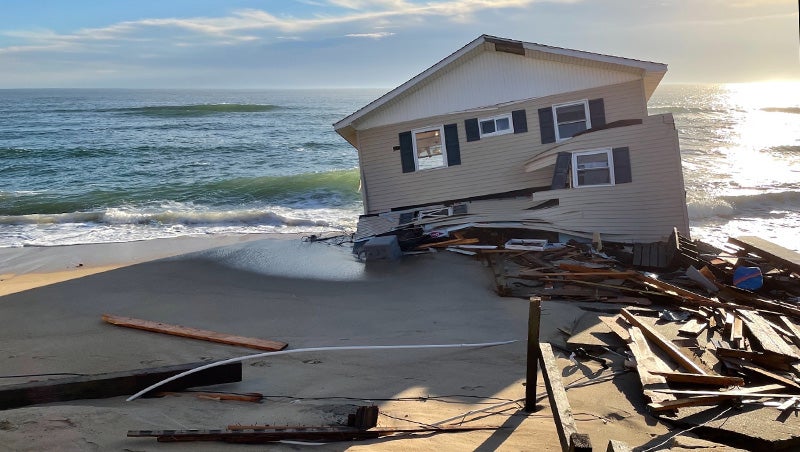A house in Rodanthe, North Carolina, has collapsed into the Atlantic Ocean, marking the sixth such incident along the Cape Hatteras National Seashore in the past four years. U.S. National Park Service officials confirmed the collapse and subsequently closed about one mile of the beach along Ocean Drive.
Sixth House Collapse in Four Years
Visitors were advised to avoid beaches north of Sea Haven Drive extending into the southern portion of Pea Island National Wildlife Refuge due to the presence of dangerous debris both on the beach and in the water. Cleanup efforts involved moving dozens of pickup truckloads of debris to a nearby parking lot, with public assistance welcomed to help with the ongoing cleanup efforts. Notably, the house was unoccupied at the time of its fall.

Impacts of Rising Sea Levels
This latest collapse is part of a troubling trend that highlights the growing impact of climate change on coastal communities. Two years ago, a video capturing a beach house sinking into the Atlantic in Rodanthe went viral, drawing attention to the vulnerability of these coastal areas. The same year, a NASA report warned that U.S. sea levels could rise by as much as 12 inches by 2050, with the Southeast and Gulf coasts experiencing the most significant changes. The report projected that up to 13 million Americans could be displaced by 2100 due to rising sea levels.
Supporting this concern, a study published in Nature Communications last year found that since 2010, sea level rise along the nation’s Southeast and Gulf coasts had reached unprecedented rates, not seen in at least 120 years. Tulane professor Sönke Dangendorf, who led the study, noted that these rates were three times higher than the global average over the same period.
Vulnerability of North Carolina’s Barrier Islands
North Carolina’s coast, consisting largely of narrow, low-lying barrier islands, is particularly susceptible to the effects of climate change. These islands are increasingly vulnerable to storm surges and erosion from both the bay and the sea as global temperatures rise. As sea levels continue to rise, these islands naturally migrate toward the mainland, complicating efforts to maintain properties in their current locations. According to the National Park Service, some beaches in the state have been eroding at a rate of about 13 feet per year. The dramatic impact of climate change on the region was underscored in 1999 when the historic Cape Hatteras Lighthouse was moved nearly 3,000 feet inland to protect it from encroaching seas.

Severe Weather Exacerbates Coastal Erosion
The recent house collapse occurred just days after severe weather hit North Carolina and six other states, leaving a trail of destruction. Such weather events exacerbate the already critical situation along the coast, accelerating erosion and increasing the frequency of property losses. As cleanup efforts continue in Rodanthe, the incident serves as a stark reminder of the urgent need to address the impacts of climate change on vulnerable coastal regions.
